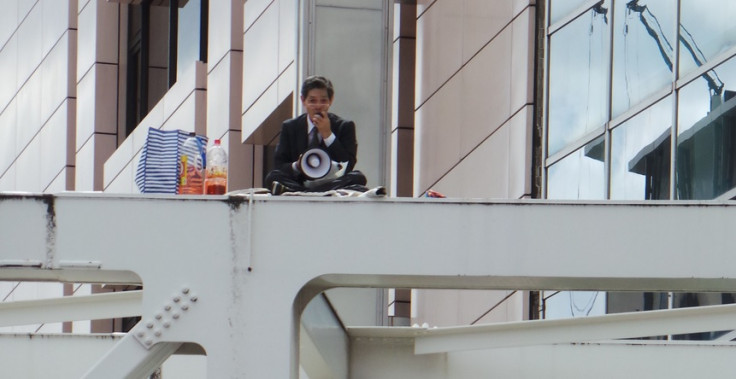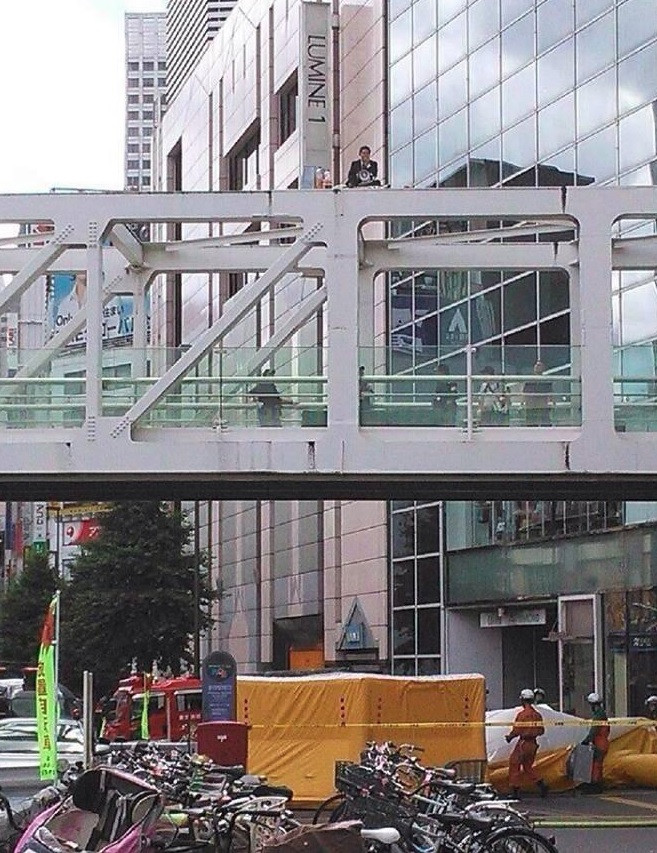Tokyo Protester Sets Himself on Fire in Shinjuku Station

An unidentified Japanese man in his fifties or sixties has dramatically set fire to himself on a footbridge near Shinjuku station, Tokyo's busiest railway station.
The man is believed to have climbed the girders on to the bridge between 1pm and 2pm local time on Sunday. Smartly dressed, in a dark suit, he carried a megaphone through which he announced his intention to kill himself in protest at Japanese Prime Minister Shinzo Abe's ongoing push to involve Japan more deeply in military operations around the world.
The man then calmly put down the megaphone, and, seated on a mat he had brought with him, set fire to himself, pouring on flammable liquid from a pair of bottles.
Firemen, security guards and police rushed to his aid. Unbelievably, as seen in the video below, the man was still alive when rescued and taken to hospital. Nothing more is known about his condition.
"Everybody who happened to be there stopped to watch what was happening. The moment the man set himself on fire, the audience burst into screams, and we were all left in total shock," Yuto Ishida, a 19-year-old college student, told the Japan Times.

Prime Minister Abe's desire for Japan to re-emerge as a military force is highly controversial in a country that prides itself on having renounced war, following the calamitous World War II defeat of 1946. Article 9 of Japan's 1947 post-war constitution explicitly outlaws war as a means of solving international disputes, and forbids Japan from maintaining armed forces with the potential for war.
Article 9 reads: "Aspiring sincerely to an international peace based on justice and order, the Japanese people forever renounce war as a sovereign right of the nation and the threat or use of force as means of settling international disputes To accomplish the aim of the preceding paragraph, land, sea, and air forces, as well as other war potential, will never be maintained."
Japan does maintain a self-defence force, but its troops are forbidden from involvement in non-domestic disputes. During the Vietnam war, Japan provided logistical support to the American forces from local airbases, which sparked considerable domestic unrest. In 1967, when then Prime Minister Sato attempted to visit South Vietnam, rioters blockaded the approaches to Tokyo Airport and burned police vehicles.
Watch dramatic video of the burning man being rescued on YouTube, below:
© Copyright IBTimes 2025. All rights reserved.




















